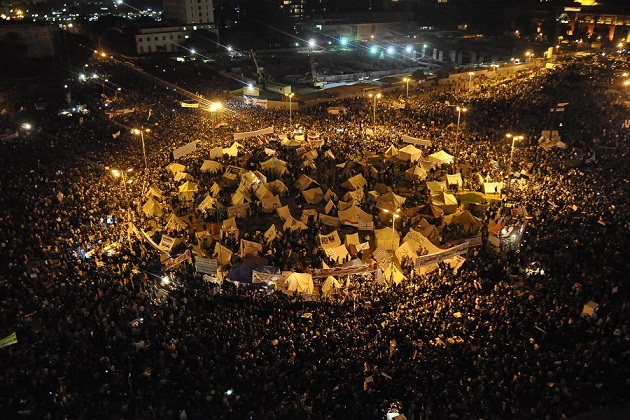ADDIS ABABA: Egypt’s ambassador to Ethiopia said Thursday that his government is willing to negotiate disputed Nile River issues with Ethiopia, including a colonial-era treaty that gives Egypt a majority stake in the river.
Ambassador Tarik Ghoneim said Egypt’s new government wants to start discussions with all nine Nile countries about using waters in the best interest of all.
"Everything is on the table," he said.
Egypt has previously refused any deal that would reduce its share of the Nile and give more access to other countries. A 1929 treaty gives Egypt majority rights to the Nile’s waters.
Under the pact, Egypt is entitled to 55.5 billion cubic meters a year, the lion’s share of the Nile’s total flow of around 84 billion cubic meters, despite the fact some 85 percent of the water originates in Ethiopia.
"We shouldn’t look back to the past," Ghoneim said. "It would be very healthy and good for us to be very transparent and be very open and discuss everything. This will lead us to finding this win-win situation."
Ethiopian plans to build a hydroelectric power dam along the Blue Nile River had drawn objections from Egypt and Sudan.
Ghoneim did not give details on what agreements may be reached about the $5 billion hydropower dam. But he said Egypt’s prime minister will visit Ethiopia soon to learn more about the dam.
"We have to know more details in order for us to engage in a project of this magnitude," Ghoneim said. "We would like to listen to Ethiopia and understand more."
Ethiopian officials welcomed the offer.
"There is a new momentum in Egypt after the revolution," said Foreign Minister Hailemariam Dessalegn.
According to a Reuteres report, Ethiopia will deny Egypt a chance to examine the dam unless Cairo inks a new deal relinquishing its veto powers over allocation of the river’s waters, an official said on Thursday.
"We are ready to negotiate and engage ourselves at the higher and technical level, but we are an independent country," Desalegn said. "The cooperative framework agreement (signed by upstream countries) gives this option (examination) to all countries, so we have to engage ourselves to an agreement where we can work together equally," he told a news conference.
Ethiopia has built five huge dams over the last decade and aims to produce 15,000 MW of power within 10 years to overcome chronic power shortages and export to other energy-starved African countries.
Analysts have expressed fears that the dispute over the river could spark war. Tensions rose last month when Burundi joined five other countries — Ethiopia, Kenya, Uganda, Rwanda, Tanzania — and signed the new pact.
Egypt, threatened by rising temperatures and a growing population, is almost entirely dependent on the Nile for its water and has been nervously watching hydro-electric power dam projects take shape in upriver nations. –Additional reporting by Reuters
